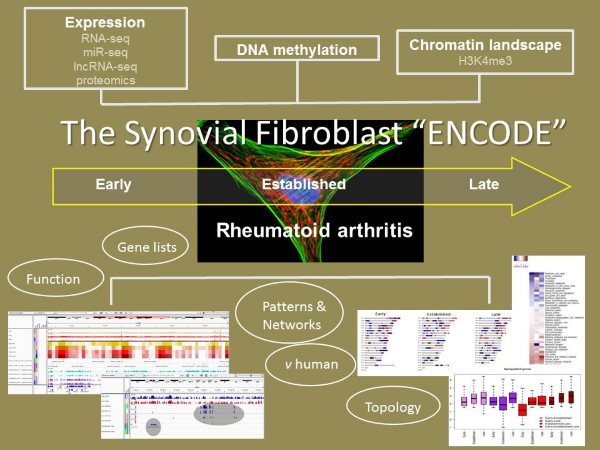12/05/2017
In a study recently published in Arthritis & Rheumatology and discussed in an Editorial, Ntougkos, Chouvardas, and colleagues, presented the first systematic examination of the pathogenic changes that occur in mouse synovial fibroblasts in progressive TNF-driven arthritogenesis at the levels of transcriptome, methylome and chromatin. They identified distinct patterns of transcriptional deregulation, which are enriched in pathways of the innate immune response and mesenchymal differentiation, and are associated with DNA methylation changes and highly active promoters as marked by H3K4 trimethylation. Notably, the authors described significant overlaps between mouse and human data, at the level of genes and more so at the level of pathways, thus reinforcing the human TNF-transgenic mouse as a reliable model of rheumatoid arthritis (RA). In addition to being a starting point for the discovery of pathogenic mechanisms and disease biomarkers, in the commentators’ words this work puts forward the notion that “the large scale puzzle RA cannot be solved by pouring millions of highly variable fragments into a high-end bioinformatics computer but only piece by piece by innovative scientists with careful evaluation of hypothesis-driven data sets”. With this study, the authors highlight once more the concept that animal research is essential to reproduce a complex disease, to understand new biological mechanisms and develop new treatments.
